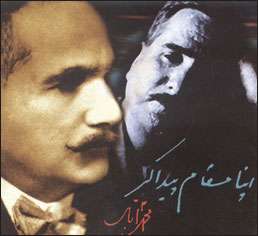Bahaudin and the Wanderer: A Mystical Lesson on Heedlessness
Bahaudin and the Wanderer: A Mystical Lesson on Heedlessness
Bahaudin el-Shah, revered master of the Naqshbandi Sufi order, stood one day in the bustling square of Bokhara, surrounded by his disciples. As the air hummed with the quiet reverence of the students, a wandering Kalendar approached—a member of the Malamati, known as the “Blameworthy,” a sect often misunderstood for their disregard of social conventions.
Bahaudin greeted him with the customary Sufi question: “From where do you come?”
The Kalendar, with a wide grin that bordered on foolishness, answered, “I have no idea.”

His words rippled through the disciples, some of whom murmured in disapproval. Was this not disrespect? They were, after all, in the presence of their master.
Unfazed, Bahaudin pressed on: “Where are you going?”
The wanderer, now shouting with childlike energy, repeated: “I do not know!”
“What is Good?” Bahaudin asked, as more people gathered, drawn to the odd exchange.
“I do not know,” the Kalendar replied once more, indifferent to the crowd’s growing tension.
“What is Evil?” Bahaudin continued.
Again, the answer was the same: “I have no idea.”
Undeterred by the crowd’s murmurs, Bahaudin asked: “What is Right?”
The Kalendar paused, as though drawing from an inner place that defied intellect. “Whatever is good for me,” he declared with confidence.
“And Wrong?”
“Whatever is bad for me.”
At this, the crowd—irritated beyond endurance—drove the dervish away. With purposeful steps, the Kalendar walked off, headed toward no discernible destination. He seemed to vanish as mysteriously as he had appeared.
Turning to his disciples, who remained bewildered by the encounter, Bahaudin spoke: “Fools! You mock this man, but he was revealing a truth you fail to see. In his so-called ignorance, he was demonstrating the heedlessness with which you all live, unaware, every day of your lives.”
Philosophical and Mystical Insights
In this simple, seemingly absurd interaction, profound lessons on human ignorance, attachment, and self-deception emerge. The Kalendar’s answers were not meant to be clever riddles, but reflections of the way most people live: unaware of where they come from or where they are going, blind to the true nature of good and evil, right and wrong.
Visit https://www.thesufi.com/category/biographies/, for more Sufi stories.













![Lahore de Darwaajay [Gates of Inner Lahore City]](https://www.ravimagazine.com/wp-content/uploads/2015/04/lahore-fort-badshahi-mosque-beenish-scans-164-520x245.jpg)